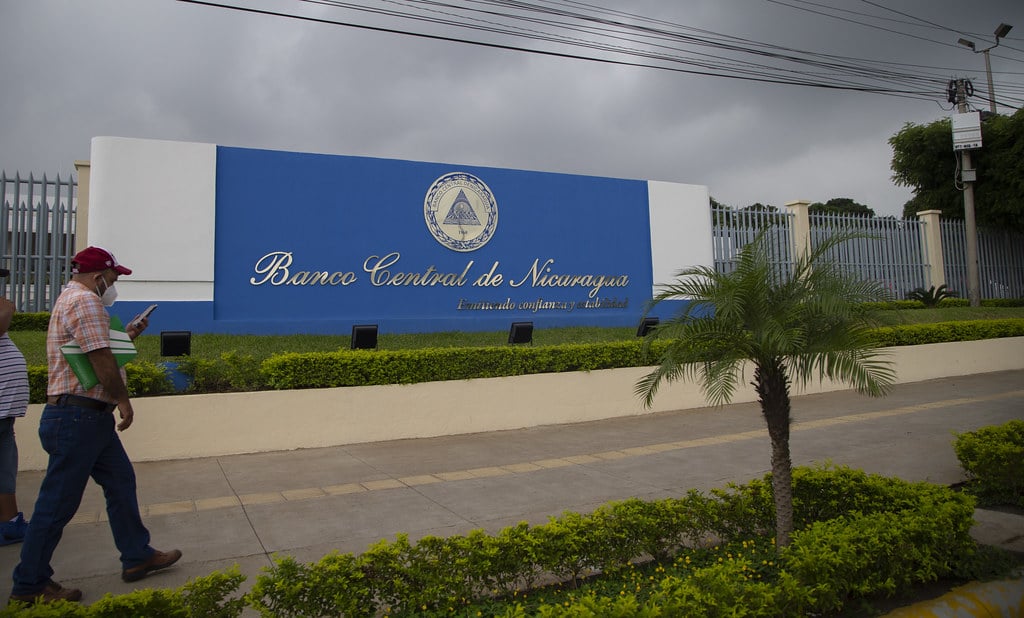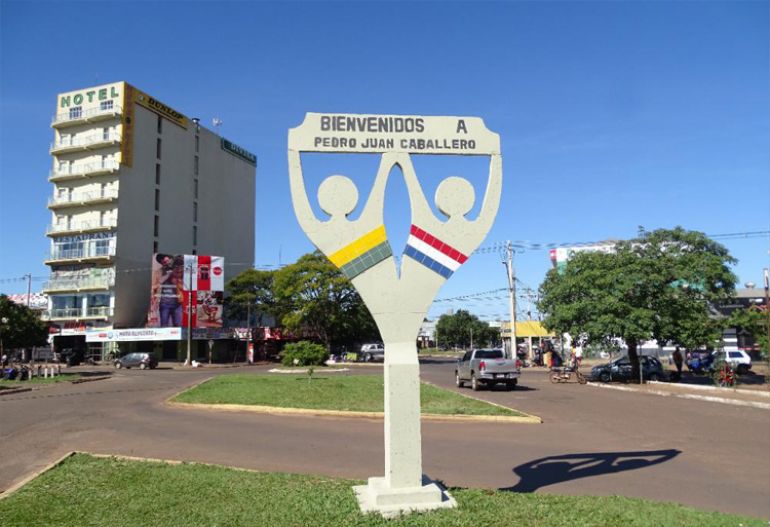The Central Bank of Nicaragua (BCN), published on March 31 its Annual report 2021, which states that last year, the growth of the country’s gross domestic product (GDP) was 10.3%, which would constitute one of the highest in history.
It is normal for economies to grow dramatically after a year of decline, a phenomenon that economists call the ‘rebound effect’. That is more real to the extent that the drop has also been spectacular, like the three that Nicaragua chained between 2018 and 2020, although the 2021 Annual Report refrains from mentioning it.
Instead, the BCN assures that “2021 was the year of economic recovery and of the return of the growth of the Nicaraguan economyafter it was affected by various shocks since 2018, including the covid-19 pandemic at the beginning of 2020.
As the president of the BCN, Ovidio Reyes, pointed out during the acts of inauguration of the headquarters of the Central American Bank for Economic Integration (CABEI), in Managua, in the fourth quarter of 2021, a level of economic activity similar to that observed in the first quarter of 2018 was reached, in addition to detailing that “in the total of the year, the level of GDP at constant prices was higher than the one observed in 2017.”
The explanation would be based on the expectations of economic agents, that the advancement of vaccination would allow a quicker return to pre-pandemic normality, as well as “the favorable external context”, referring to the increase in the prices of many of our main export products, as shown by the fact that our general merchandise exports grew 21.7%. in the observed year.
When explaining which were the economic activities that registered the highest growth, the Report highlights that they were mines and quarries (37.9%), construction (33.4%), commerce (16.2%), manufacturing (14.3%), fishing and aquaculture (12.2%) , electricity (10.9%) and hotels and restaurants (10.5%).
Regarding this last sector, the document specifies that “the tertiary sector (services) grew for the first time in three years, driven mainly by trade, hotels and restaurants, and transport and communications.”
According to the Report, “the growth phase in the recovery of GDP began in the first quarter of 2021”, with a year-on-year variation of 4.2%, which was followed by a second quarter with a performance of 17.7%, closing the third and the fourth quarter, with 10.2% and 10.1% respectively.
These numbers would have been accompanied by positive developments in several areas, highlighting unemployment (3.7% in the fourth quarter of 2021); the tax revenue growth (26.9%), and public investment (38%); higher income from exports (29.5%), imports (41.8%), gross foreign direct investment (52.7%), remittances (16%); the growth of credit (6.7%) and of deposits (12%); as well as the increase in the balance of gross international reserves (RIB) to a record level of USD 4,046.6 million.
Better numbers in the INSS
The assertion that the unemployment rate fell from the 4.8% that it marked in the fourth quarter of 2020, to the 3.7% observed in the same period of this year, would be based on the Continuous Household Survey, of the Nicaraguan Institute of Information of Development (Inide), while formal employment, measured by affiliation to the Nicaraguan Social Security Institute (INSS), which grew 6.5% compared to December 2020, also highlighting “the reduction in underemployment and the increase of 46,748 contributors” to the INSS.
In terms of inflation, it is noted that the 7.21% observed in 2021 (after 2.93% in 2020), is explained in part by “a generalized increase in the prices of raw materials (mainly energy and fuels)” . On a local scale, the divisions that contributed the most to the increase in prices were food and non-alcoholic beverages, transportation, and accommodation and public services, adding 5.15 percentage points.
The document asserts that “the global economic recovery favored external flows”, detailing that merchandise exports increased 23.1% (5.8% in 2020), thanks to the boost from the manufacturing and mining sectors; to the increase in the exported volume of gold, live cattle, and peanuts, among others, and to the rise in international prices, especially for beef, sugar, and coffee, among others). Exports from free zones grew 36.8%, after falling 14.7% in 2020.
The Bank assures that gross foreign direct investment increased to 1,470.1 million dollars, from the USD 962.9 million captured in 2020, (while net FDI amounted to 1,220.1 million, versus USD 746.5 million in 2020), directed to energy and mining, industry, and telecommunications. The growth of remittances (16% in 2021, versus 10% in 2020), and a slowdown in the drop in income from tourism (-7.4% in 2021 and -61.5% in 2020), complement this section.
The result would be that the gross international reserves (RIB) reached 4,046.6 million dollars at the end of 2021, “which represented an increase of 834.7 million dollars compared to 2020 and a coverage of 2.8 times the monetary base, an adequate level that supports the stability of the current exchange rate regime”, clarified the monetary authority.
The good news covers the national banking, since “financial intermediation continued to consolidate, with deposits and credit growing at positive rates.” The gross credit portfolio of the entire System grew 4.9%, while deposits grew 12%. The delinquency was reduced, standing at 2.4% of the gross portfolio (was 4.1% in 2020), while the portfolio at risk decreased from 17.1% marked in 2020, to 12.8% in 2021.
The Report admits that “although credit grew, it continues to lag behind the dynamics of economic activity, in such a way that the increase in banking liquidity, resulting from the increase in deposits, was channeled in part to investments in securities ” from the public sector.
















